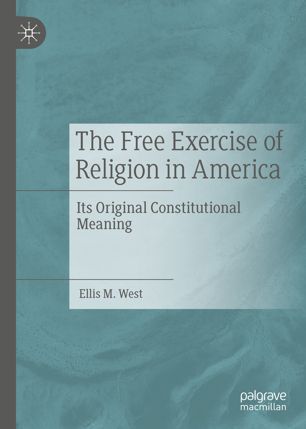

Most ebook files are in PDF format, so you can easily read them using various software such as Foxit Reader or directly on the Google Chrome browser.
Some ebook files are released by publishers in other formats such as .awz, .mobi, .epub, .fb2, etc. You may need to install specific software to read these formats on mobile/PC, such as Calibre.
Please read the tutorial at this link: https://ebookbell.com/faq
We offer FREE conversion to the popular formats you request; however, this may take some time. Therefore, right after payment, please email us, and we will try to provide the service as quickly as possible.
For some exceptional file formats or broken links (if any), please refrain from opening any disputes. Instead, email us first, and we will try to assist within a maximum of 6 hours.
EbookBell Team

4.7
36 reviewsThis book explains the original meaning of the two religion clauses of the First Amendment: “Congress shall make no law [1] respecting an establishment of religion or [2] prohibiting the free exercise thereof.” As the book shows, both clauses were intended to protect the free exercise of religion or religious freedom. West shows the position taken by early Americans on four issues: (1) the general meaning of the “free exercise of religion,” including whether it is different from the meaning of “no establishment of religion”; (2) whether the free exercise of religion may be intentionally and directly limited, and if so, under what circumstances; (3) whether laws regulating temporal matters that also have a religious sanction violate the free exercise of religion; and (4) whether the free exercise of religion gives persons a right to be exempt from obeying valid civil laws that unintentionally and indirectly make it difficult or impossible to practice their religion in some way. A definitive work on the subject and a major contribution to the field of constitutional law and history, this volume is key to a better understanding of the ongoing constitutional adjudication based on the religion clauses of the First Amendment.